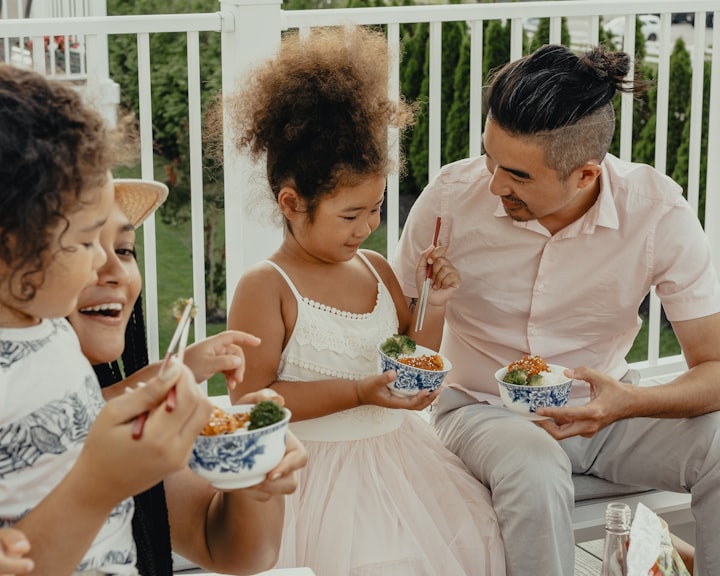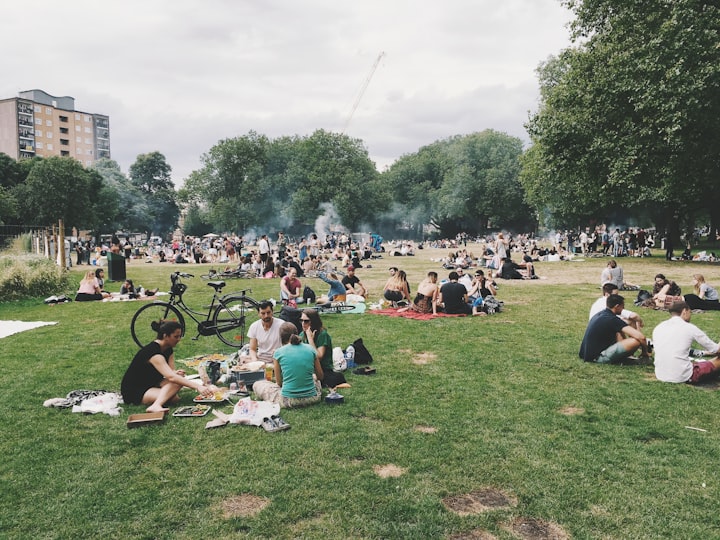Eighteen years it’s been. A long time ago in the grand scheme of my life; long enough that I struggle to remember what he looked like. He was not my father—although I would have no regrets if he were. He was my grandfather; my father’s father. His name was Papa; or so it seemed. Everyone called him that, but I only came to realize a few years after his death that it was just a title. Much the same way as “mummy” is used for mothers and “mama” for grandmothers. But I could not care less. He was, is, and would continue to be Papa to me; such was the influence he had on me in such a short time. In fact, it only lasted a little over two weeks; the time I spent with him just before his death. My parents would later tell me that it was in fact longer than that. They had also taken us—I and my two brothers—to our hometown when I was about three to see him. They said that his eyes lit up when he set his sights on me for the first time, in a way that they did not for my two older brothers. They said that he spontaneously took a liking to me that they had never seen for anyone else bar his wife; my grandmother.
In fact, they had confessed that he thought I looked very much like her; wide eyes with jet-black pupils, lips that curved upwards like I was smirking, short and pudgy fingers. Conclusive evidence for him was the fact that I was born three weeks after she had died. A true African man, he held onto the traditional beliefs of reincarnation; believing me to be his wife back to life. In retrospect, I see that he went to great pains to hide these beliefs whenever he interacted with me, and I wonder why. I am inclined to believe that he assumed it would make me feel uncomfortable around him; a viewpoint that spoke to the kind of man he was. In the sixteen days I remember spending with him, he communicated with me in a manner my father never did, and thought me the virtues of hardwork, autonomy, industry and self-contentment; values that have stayed with me to this day.
It was the Christmas holidays of 2004. As was almost customary, families would travel from their city of residence to their hometown for festivities. But instead of travel with my parents and brothers, I was sent to Papa alone. My brothers had just been accepted to a secondary school out of town, so they were sent to stay with an uncle close enough to the institution such that they’d have no hiccups getting to school once the holidays were over. My father was trying to acclimatize to a new job posting, so my mother had to stay back at home with him. I remember going to the farm with Papa about two days after I had arrived. At the time I was a proper city girl; ten years old, never lifted a hoe in my life. Papa knew that, and it was enough incentive for him to decide to go harvest the rest of his yams the day before Christmas with me.
I remember waking up in the morning earlier than I had ever woken up, and walking about thirty minutes with Papa through dense vegetation and forest undergrowth thick enough that Papa needed to swipe at leaves and branches with his two-feet long machete to make way for us. The timing was key, he said. An effective farmer had to complete a day’s work before the sun came up at noon. This meant getting out of bed and into the freezing cold of the West African harmattan. The image of Papa with no shoes on, storming across land riddled with thorns and stumps would forever remain etched in my memory. It wasn’t that he had no shoes. He simply did not care about wearing them as much as I did mine. He had, after all, lived like this for some seventy odd years. He was a strong man, seemingly immune to the ravages of time. He preached—nonverbally I might add—adherence to one’s belief system. But he also recognized necessary boundaries and manifested respect for perspectives that differed from his. He ensured I was properly dressed for the exercise; trousers, long-sleeved tops and thick-soled rain boots to protect against the thorns, stumps and insects.
But he made sure I put in the work when it mattered. Despite having half a dozen workers in his employ, he preserved an adequately-sized hoe for me at the farm, and spent all morning showing me to harvest yams. He had cultivated his tubers meticulously, even allowing for an extra month of maturity for half of his produce. This, he said, was necessary for improved yield, even if meant that his peers had already cashed in on their yams by the time he would eventually harvest his. But he would go on to teach me a trading practice that worked out for him. Leaving the harvest until Christmas meant he had much larger, dryer and sweeter tubers, which would go on to fetch more money in the period immediately after the holidays. Even better, that period would be marked by food scarcity and greater demand. This meant that he would have enough resources to invest in the next planting season.
Papa showed me how to dig around the tubers so as to not cut into them with my blade. When the earth around the yam was freed up enough and the climber disengaged from the tuber, it would be pulled out by hand; an exercise requiring a considerable amount of core strength. The yams were then to be cleaned of any residual soil using a special scapel. By the end of the day, I had three tubers to my name but had learned priceless life lessons. I knew to look for positives in adverse circumstances. I knew to think outside the box to create competitive advantage in any business or industry I found myself in. By braving the cold to get to the farm early, Papa thought me the value of conscientiousness. He also taught me the merit of delaying gratification for future gains by deferring his harvest beyond the usual time. In the days that followed, he would instruct me on the absolute, unimpeachable necessity of hardwork and autonomy, and how invaluable they would be to me as a woman in our society. It was not until years after his death that my father told me Papa acquired a lot of his feminist ideals from my grandmother; his wife. She had run the largest agricultural business in our hometown when she was alive, and her industry was her most endearing attribute in Papa’s eyes.
I would follow Papa to the annual naming ceremony of ten of our village chieftains about three days before I left for the city. Customarily held on the last day of the calendar year, the event usually bore great excitement for the rest of the community, as it was marked by unrivalled festivities. On the day, the whole community would assemble at the village square, pre-arranged the day before with thousands of chairs under tens of rain-repellant canopies. A raft of traditional musical presentations would precede the swearing in ceremony headed by the community chief.
The attendees would then be treated to “refreshments;” traditional dishes prepared on behalf of the chief for the community. Afterwards, the chieftains would move back to their private residences, where they would entertain and feed family, friends, and former chieftains. Having celebrated his own naming day some twenty years prior, Papa was well within his rights to visit as may new chieftains as he wished to on the day.
So after filling my belly with just about every delicacy at the square, I joined Papa on his trip around town. We stopped by one bustling location after another, whilst I clamored to get a bite and taste of everything I could. It was, after all, my first ever experience of such an event, plus it was a rare chance for me to literally taste my home culture. But Papa was having none of it.
He would scold me when we eventually got home, criticizing the gluttony and lack of composure I showed on the day. Apparently, he had held back from telling me about it earlier, preferring instead to watch the entire day play out. He would ultimately put an arm round my shoulder, acknowledging the naiveté that accompanied my age, but not before teaching me the merits of self-respect and being content with myself in the face of seemingly limitless resources.







Comments
There are no comments for this story
Be the first to respond and start the conversation.